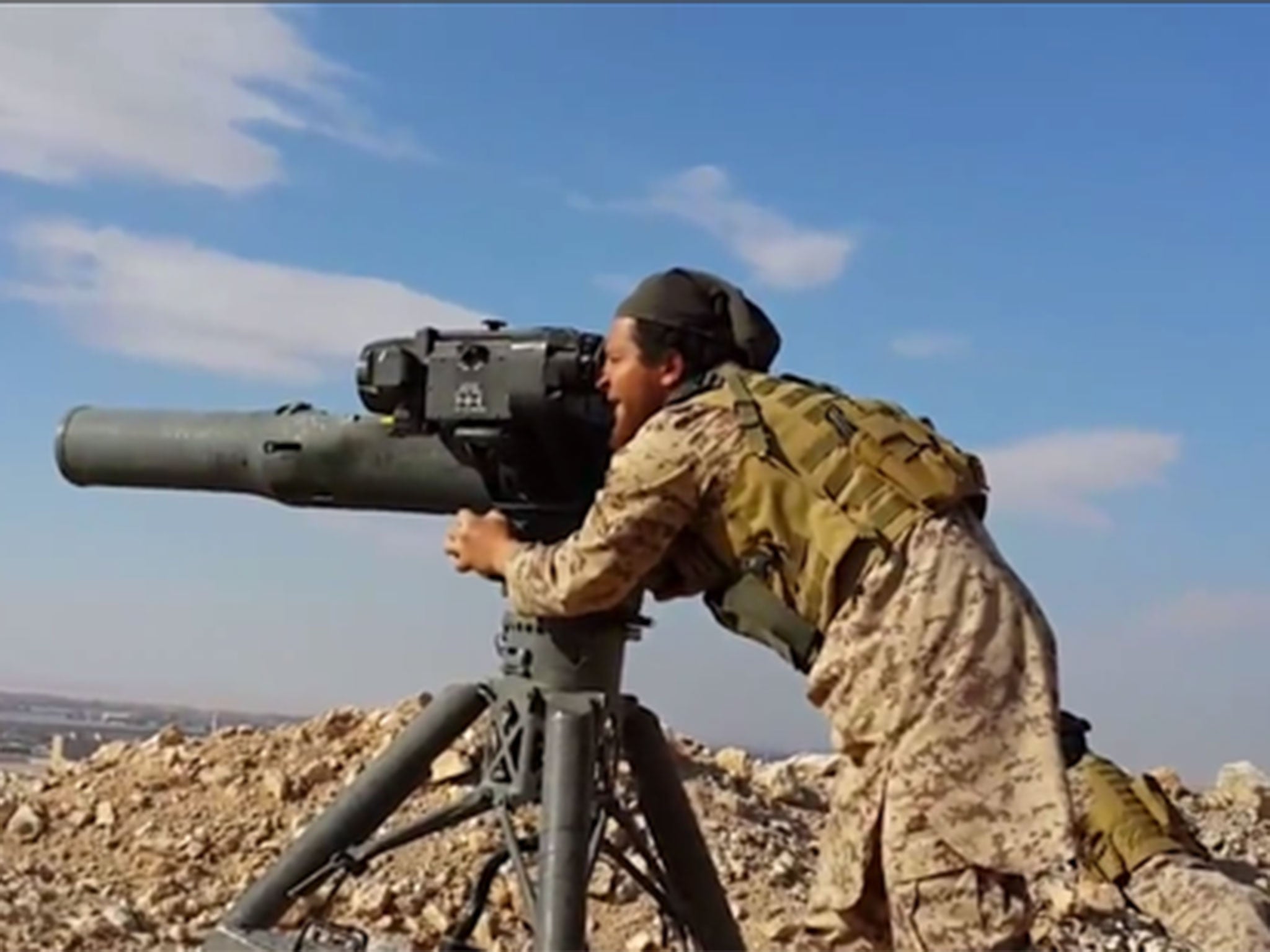Isis's dirty bomb: Jihadists have seized 'enough radioactive material to build their first WMD'
Nato and the Australia Group 'really worried' by latest defence reports

Your support helps us to tell the story
From reproductive rights to climate change to Big Tech, The Independent is on the ground when the story is developing. Whether it's investigating the financials of Elon Musk's pro-Trump PAC or producing our latest documentary, 'The A Word', which shines a light on the American women fighting for reproductive rights, we know how important it is to parse out the facts from the messaging.
At such a critical moment in US history, we need reporters on the ground. Your donation allows us to keep sending journalists to speak to both sides of the story.
The Independent is trusted by Americans across the entire political spectrum. And unlike many other quality news outlets, we choose not to lock Americans out of our reporting and analysis with paywalls. We believe quality journalism should be available to everyone, paid for by those who can afford it.
Your support makes all the difference.The Isis militant group has seized enough radioactive material from government facilities to suggest it has the capacity to build a large and devastating “dirty” bomb, according to Australian intelligence reports.
Isis declared its ambition to develop weapons of mass destruction in the most recent edition of its propaganda magazine Dabiq, and Indian defence officials have previously warned of the possibility the militants could acquire a nuclear weapon from Pakistan.
According to the Australian foreign minister, Julie Bishop, Nato has expressed deep concerns about the materials seized by Isis from research centres and hospitals that would normally only be available to governments.
The threat of Isis’s radioactive and biological weapons stockpile was so severe that the Australia Group, a 40-nation bloc dedicated to ending the use of chemical weapons, held a session on the subject at its summit in Perth last week.
“This is really worrying them,” Ms Bishop said in an interview with The Australian.
When they swept across territory in Syria and Iraq, she said, “the insurgents did not just clear out the cash from local banks”.
Last week Ms Bishop spoke at the Australia Group meeting about fears Isis was weaponising poisonous gases such as chlorine.
And speaking to The Australian, she confirmed that the concerns she was raising stemmed from reports filed by the Australian department of defence as well the foreign office.
The growing concerns about Isis’s development of weapons of mass destruction come at a time when experts fear the militant group will be “more active than ever” to mark the start of Ramadan and the one-year anniversary of its declaration of a “caliphate”.
Isis said it was changing its name to “Islamic State” following the first public address by its leader Abu Bakr al-Baghdadi in Mosul on 29 June last year, and the US-based Institute for the Study of War has noted that the group usually reserves its major operations to coincide with the Islamic holy month.
“Isis is likely to begin and end Ramadan with attempted spectacular military offensive actions in Iraq and Syria,” it said.
Subscribe to Independent Premium to bookmark this article
Want to bookmark your favourite articles and stories to read or reference later? Start your Independent Premium subscription today.
Join our commenting forum
Join thought-provoking conversations, follow other Independent readers and see their replies
Comments